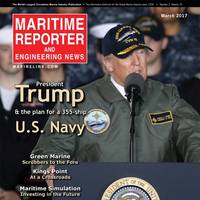Trump to Set Hefty Tariffs on Steel, Aluminum Imports

U.S. President Donald Trump announced on Thursday he would impose tariffs of 25 percent on imported steel and 10 percent on aluminum, in a move the administration said would protect U.S. industry, but which critics said would fail to boost jobs and risked stoking a trade war with China. Trump, speaking after a meeting with U.S. steel and aluminum makers said the duties would be formally announced next week. “We’re going to build our steel industry back and our aluminum industry back," he said. News of the tariffs drove the stocks of U.S.
Trump: U.S. Hits Steel, Aluminum Imports with Hefty Tariffs

U.S. President Donald Trump announced on Thursday he would impose tariffs of 25 percent on imported steel and 10 percent on aluminum, in a move the administration said would protect U.S. industry, but which critics said would fail to boost jobs and risked stoking a trade war with China. Trump, speaking after a meeting with U.S. steel and aluminum makers said the duties would be formally announced next week. “We’re going to build our steel industry back and our aluminum industry back," he said. News of the tariffs drove the stocks of U.S.
SHIPS Act: 355 Ship Navy Gets Legislative Mandate

The push to rebuild the U.S. Navy received a boost today when U.S. Senator Roger Wicker, R-Miss., and Congressman Rob Wittman, R-Va., introduced bicameral, bipartisan legislation that would make it the policy of the United States to achieve the Navy’s requirement of 355 ships. Under the “Securing the Homeland by Increasing our Power on the Seas (SHIPS) Act,” the fleet would be comprised of the optimal mix of platforms, with funding levels subject to annual appropriations. Currently, 276 ships are in the battle fleet.
WRDA to the Wise

May 15, 2013 was a very good day for the nation’s barge and towing operators, as well as shippers of grain, coal, chemicals, petroleum products, aggregate materials, and agri-input products. It was also a good day for our nation’s economy and for its consumers. The Senate passed, by a vote of 83-14, a long-overdue Water Resources Development Act (WRDA), last reauthorized in 2007. Six years may not seem like a long time to await action on Capitol Hill. But since 57% of the locks and dams on the nation’s inland waterways system have exceeded their economic design life expectancy of 50 years…
WCI Applauds Senate for WRDA Bill
In a news press release yesterday, Waterways Council, Inc. (WCI) expressed its gratitude to Senate Environment & Public Works Chairman Barbara Boxer (D-CA) and Ranking Member David Vitter (R-LA) for their collaborative efforts to draft, manage and pass a long-overdue Water Resources Development Act (WRDA), S. 601. WCI said it was also grateful for the inclusion of several provisions of the RIVER (Reinvesting In Vital Economic Rivers and Waterways) Act, S. 407, introduced by Senator Bob Casey (D-PA), and cosponsored by Sen. Mary Landrieu (D-LA), Sen. Amy Klobuchar (D-MN), Sen. Lamar Alexander (R-TN), Sen. Tom Harkin (D-IA), Sen. Al Franken (D-MN), and Sen. Pat Roberts (R-KS).
Jones Act Reform Legislation Reintroduced
Senators Sam Brownback (R-Kan.), Jesse Helms (R-N.C.), Pat Roberts (R-Kan.), Richard Lugar (R-Ind.), Conrad Burns (R-Mont.) and Peter Fitzgerald (R-Ill.) reintroduced legislation (S.1032) designed to reform the U.S.-build requirement of the Jones Act. This bill, similar to the one introduced by Brownback last summer, would allow foreign-built dry- and liquid-bulk oceangoing self-propelled ships over 1,000 tons to ply the U.S. Coastwise trade under U.S. flag. The U.S. ownership, manning and registration (flagging) requirements would remain in place. The bill comes during a time of much activity and debate regarding Jones Act reform. Recently…
Oil Producers Left Out of Emergency Spending Bill
U.S. Senate and House negotiators have left out several programs in a nearly $15 billion emergency spending bill that would have helped U.S. oil and natural gas producers. While language was left in the spending measure to delay new royalty valuation rules on crude oil production, lawmakers rejected separate programs to provide emergency loans and other royalty relief to small oil and natural producers. Negotiators also turned down a proposal to allow natural gas producers to forgo paying hundreds of millions of dollars in interest due on refunds to customers. The original intent of the emergency spending bill, which will be voted on by the full Congress and then sent to President Clinton for his approval, was to provide money to fight the war in Yugoslavia. Oil Royalties: Sen.






